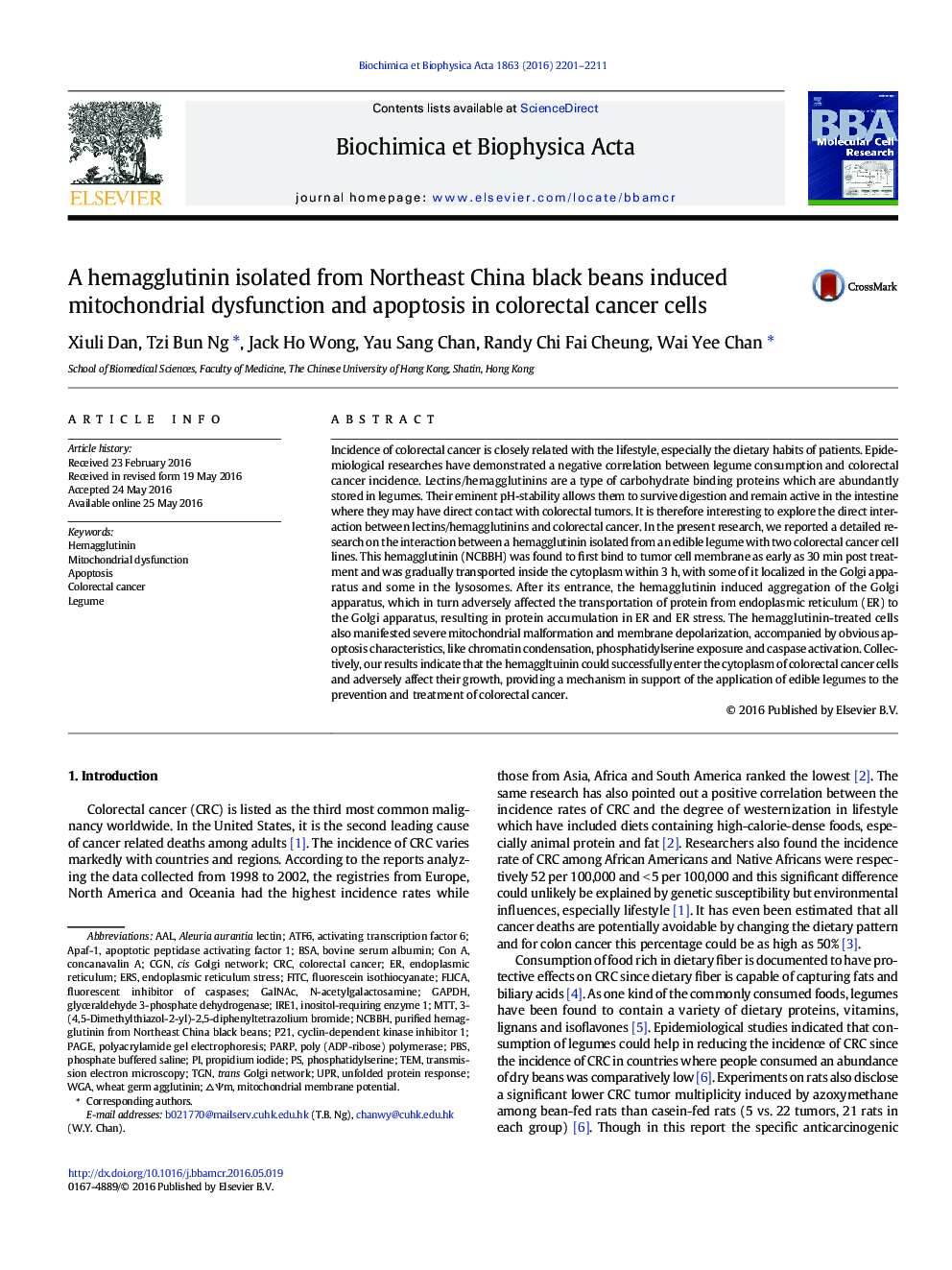| Article ID | Journal | Published Year | Pages | File Type |
|---|---|---|---|---|
| 1950415 | Biochimica et Biophysica Acta (BBA) - Molecular Cell Research | 2016 | 11 Pages |
•The effect of a hemagglutinin from an edible legume against colorectal cancer cells was investigated.•The hemagglutinin could be gradually transported inside the cytoplasm of colorectal cancer cells within 3 h.•The hemagglutinin impeded growth of colorectal cancer cells by inducing cell cycle arrest and apoptosis.
Incidence of colorectal cancer is closely related with the lifestyle, especially the dietary habits of patients. Epidemiological researches have demonstrated a negative correlation between legume consumption and colorectal cancer incidence. Lectins/hemagglutinins are a type of carbohydrate binding proteins which are abundantly stored in legumes. Their eminent pH-stability allows them to survive digestion and remain active in the intestine where they may have direct contact with colorectal tumors. It is therefore interesting to explore the direct interaction between lectins/hemagglutinins and colorectal cancer. In the present research, we reported a detailed research on the interaction between a hemagglutinin isolated from an edible legume with two colorectal cancer cell lines. This hemagglutinin (NCBBH) was found to first bind to tumor cell membrane as early as 30 min post treatment and was gradually transported inside the cytoplasm within 3 h, with some of it localized in the Golgi apparatus and some in the lysosomes. After its entrance, the hemagglutinin induced aggregation of the Golgi apparatus, which in turn adversely affected the transportation of protein from endoplasmic reticulum (ER) to the Golgi apparatus, resulting in protein accumulation in ER and ER stress. The hemagglutinin-treated cells also manifested severe mitochondrial malformation and membrane depolarization, accompanied by obvious apoptosis characteristics, like chromatin condensation, phosphatidylserine exposure and caspase activation. Collectively, our results indicate that the hemaggltuinin could successfully enter the cytoplasm of colorectal cancer cells and adversely affect their growth, providing a mechanism in support of the application of edible legumes to the prevention and treatment of colorectal cancer.
